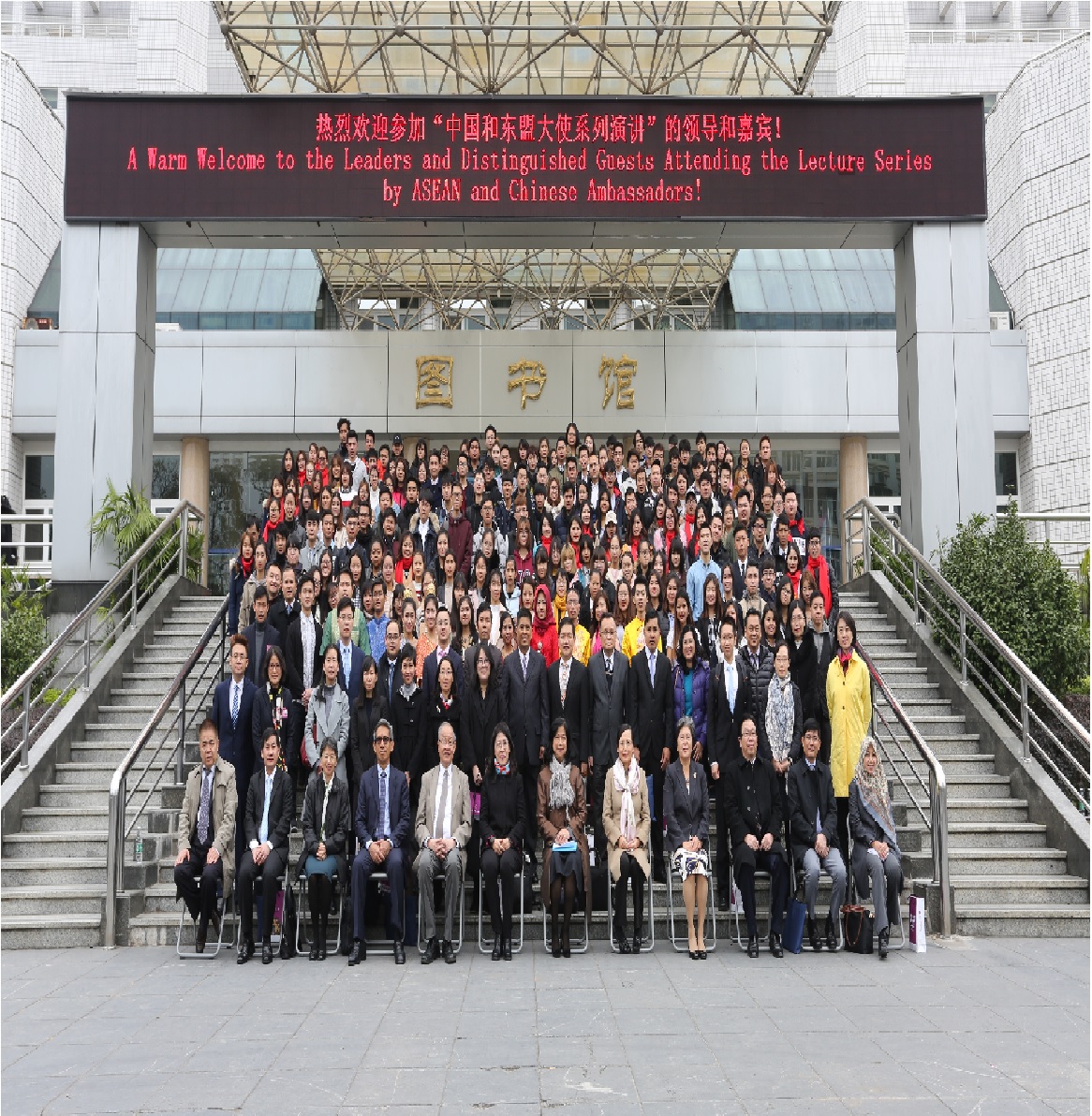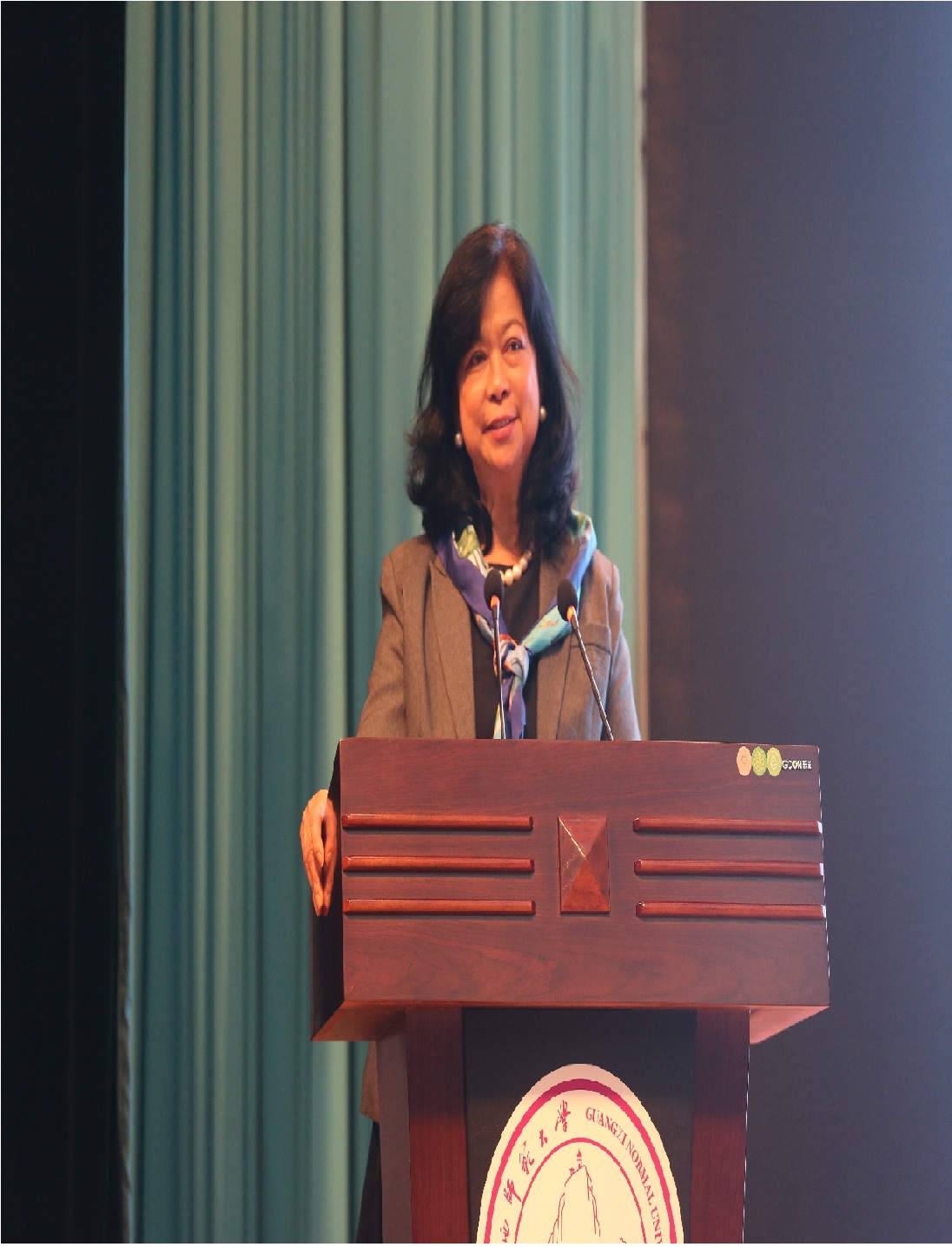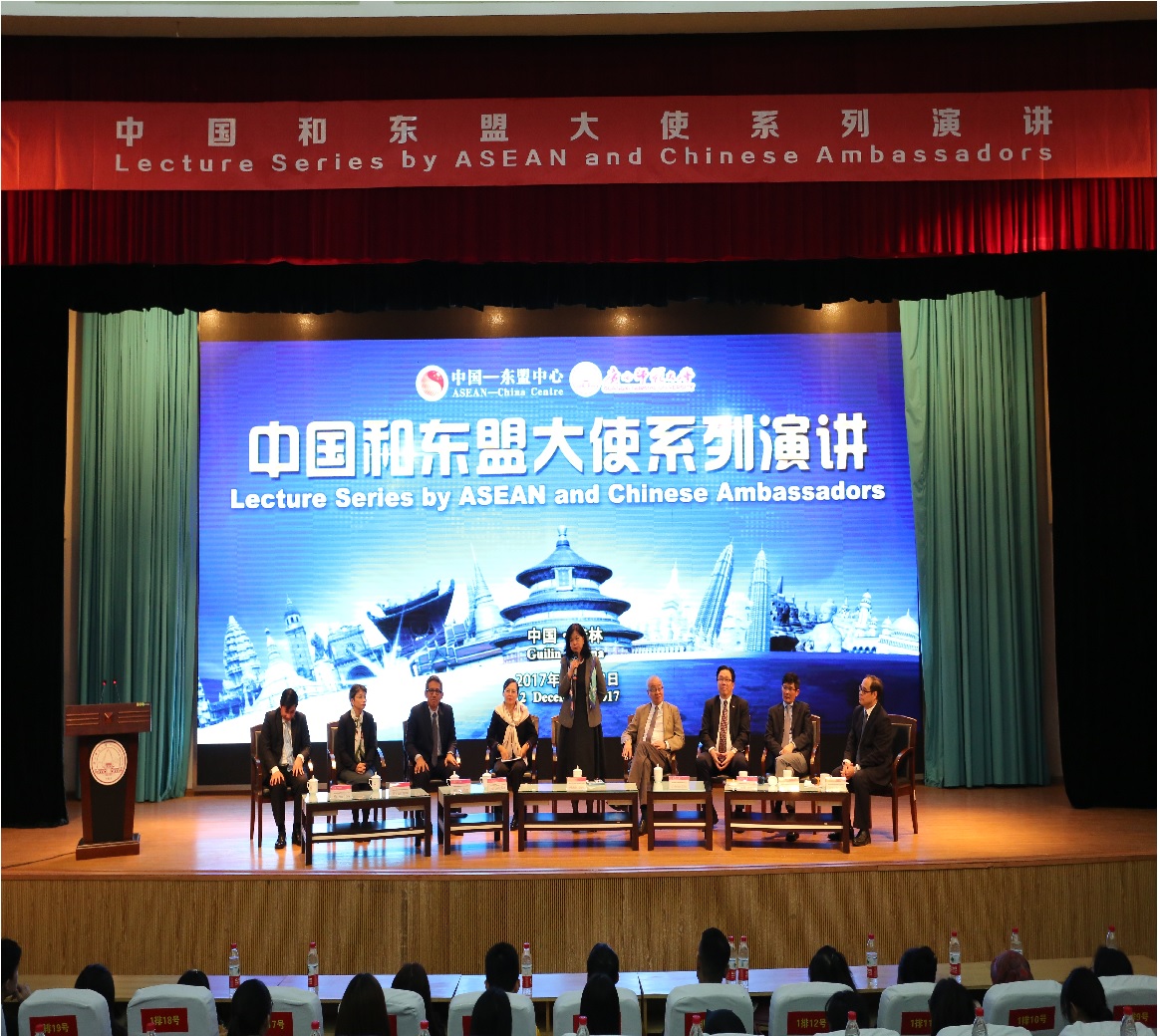
Ambassador Elizabeth P. Buensuceso, Permanent Representative of the Philippines to ASEAN, delivered a lecture on ASEAN-China dialogue relations in Guangxi Normal University in Guilin, China on 12 December 2017.

In her presentation entitled “ASEAN & China: Partners for Peace, Progress and Prosperity,” Ambassador Buensuceso, chair of the Committee of Permanent Representatives to ASEAN (CPR) and co-chair of the ASEAN-China Center Joint Council, described the ASEAN-China strategic partnership as “strong, stable and mutually-beneficial, which over the years has grown rapidly to become one of ASEAN’s most substantive dialogue partnerships.”
Ambassador Buensuceso emphasized that ASEAN and China continue to enhance political-security dialogue and cooperation through various ASEAN Plus One mechanisms, including summit, ministerial and senior officials’ meetings, as well as in broader ASEAN-led frameworks such as the East Asia Summit (EAS), ASEAN Regional Forum (ARF), ASEAN Plus Three (APT), and ASEAN Defence Ministers Meeting Plus (ADMM Plus).

She also informed at least 200 students and faculty members who attended the lecture the outcomes of the recently concluded 20 ASEAN-China Summit in Manila, including the agreement to further increase high-level exchanges and dialogues to further solidify ASEAN-China strategic partnership and promote mutual understanding, the reiteration to reach two-way trade and investment of US$ 1 trillion and US$150 billion, respectively by 2020, and the commencement of negotiations on the Code of Conduct in the South China Sea in early 2018.
Ambassador Buensuceso also said that the Leaders of ASEAN and China agreed to designate 2018 as ASEAN-China Year of Innovation, to commemorate the 15th Anniversary of ASEAN-China Strategic Partnership next year, and to issue the ASEAN-China Strategic Partnership Vision 2030 at the 21st ASEAN-China Summit in Singapore.
Ambassador Buensuceso also explained to the students the history of ASEAN, the establishment of the ASEAN community, and how ASEAN works with its dialogue partners through ASEAN-led mechanisms.
The lecture was part of the ASEAN-Chinese Ambassadors Lecture Series organized by the ASEAN China Center in Beijing.
END

